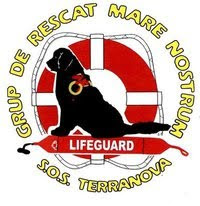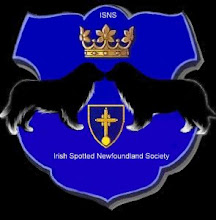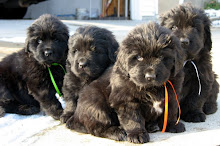Thursday, February 8, 2024
Newfoundland Dog Breed: The Gentle Giant with a Heart of Gold
(Political Insights - February 7, 2024)
"Regal, majestic, and downright incredible – these are just a few of the words that could be used to describe the Newfoundland dog breed.
These gentle giants have captured the hearts of dog lovers for centuries, and for good reason.
With their beautiful coats, impressive size, and remarkable temperament, it’s hard not to fall in love with these magnificent canines.
In this exhaustive article, we’ll delve deep into the world of the Newfoundland dog breed and uncover everything there is to know about these big-hearted beauties.
A Glimpse into the Origins of the Newfoundland Dog
As with any breed, the history of the Newfoundland dog is a fascinating tale that offers insight into how these gentle giants came to be. To truly appreciate the uniqueness of this breed, it’s essential to understand its origins, development, and the factors that shaped its physical and behavioral traits.
The Birthplace of a Breed: Newfoundland Island
As the name suggests, the Newfoundland dog breed hails from Newfoundland Island, a remote and rugged region located off the eastern coast of Canada. The island’s challenging climate and harsh terrain played a significant role in shaping the dogs that call it home. The Newfoundland’s ancestors were likely working dogs brought to the island by early European settlers, who required strong, hardy animals to assist them in their daily lives.
From Fishermen’s Helpers to World Renown
Initially, the Newfoundland dog was bred primarily for its working abilities, particularly in assisting fishermen with their heavy nets and gear. The breed’s strength, endurance, and water-loving nature made them ideal for this role, and it wasn’t long before their reputation spread far and wide. By the 18th and 19th centuries, Newfoundland dogs had become highly sought-after across Europe and America, not just for their working abilities, but also for their remarkable beauty and gentle disposition.
A Royal Connection: The Newfoundland’s Noble Fanbase
The Newfoundland dog’s rise in popularity caught the attention of many notable figures, including several members of European royalty. Queen Victoria herself was a known admirer of the breed, owning several Newfoundlands throughout her life. This royal connection helped to further cement the breed’s status as both a working dog and a highly desirable companion animal.
Physical Traits and Characteristics of the Newfoundland Dog
One cannot discuss the Newfoundland dog breed without acknowledging their most striking feature – their size. However, there’s more to these gentle giants than just their impressive stature. Let’s take a closer look at the unique physical traits and characteristics that set the Newfoundland breed apart from other dogs.
Size and Weight: Male Newfoundland dogs typically stand between 27 to 29 inches tall and weigh between 130 to 150 pounds. Females, on the other hand, are slightly smaller, measuring between 25 to 27 inches in height and weighing between 100 to 120 pounds. This makes the Newfoundland one of the largest dog breeds in existence.
Coat and Coloring: The Newfoundland’s coat is thick, waterproof, and double-layered, consisting of a dense undercoat and a long, wavy outer coat. This unique coat allows the breed to withstand the harsh conditions of its native homeland and provides exceptional insulation against cold temperatures. Newfoundland dogs come in a variety of colors, including black, brown, gray, and a distinctive black and white pattern known as “Landseer.”
Muzzle and Jowls: Another distinguishing feature of the Newfoundland breed is its broad, square muzzle and pronounced jowls. These facial traits contribute to the breed’s powerful appearance and also serve a practical purpose – the large jowls help to funnel water away from the dog’s nostrils when swimming.
Webbed Feet: To help them navigate the rough waters of their native environment, Newfoundland dogs have webbed feet, which enable them to swim more efficiently and with greater power. This trait is not only useful for their original purpose as working dogs but also makes them excellent candidates for water rescue work.
The Gentle Giant: Temperament and Behavior of the Newfoundland Dog:
While their size and physical traits are certainly impressive, it’s the Newfoundland dog’s temperament and behavior that truly set them apart. These gentle giants have earned their nickname thanks to their incredible patience, kindness, and loyalty.
Affectionate and Friendly:
Newfoundland dogs are renowned for their gentle, lovingnature. They form strong bonds with their families and are known to be especially good with children, often displaying a level of patience and tolerance that is truly remarkable. Their friendly disposition also extends to other animals, making them excellent companions for multi-pet households.
Calm and Easygoing:
Despite their impressive size, Newfoundland dogs tend to have a very calm and easygoing demeanor. They are not prone to anxiety or hyperactivity, making them well-suited for a variety of living situations, including suburban homes and even city apartments – provided they have ample space to move around.
Intelligent and Trainable: Newfoundland dogs are highly intelligent and eager to please, which makes them relatively easy to train. They respond well to positive reinforcement and gentle guidance and are quick to pick up on new commands and skills. Their intelligence and trainability have also made them valuable assets in various working roles, including search and rescue, therapy, and service work.
Protective and Loyal: While not aggressive by nature, Newfoundland dogs are known to be fiercely loyal and protective of their families. Their size and presence alone can serve as a deterrent to any would-be intruders, but if necessary, a Newfoundland dog will not hesitate to defend its loved ones. This protective instinct, coupled with their gentle nature, makes them excellent watchdogs and guardians.
Caring for a Newfoundland Dog: Health, Grooming, and Exercise Needs
As with any dog breed, proper care and maintenance are essential to ensuring a happy, healthy life for your Newfoundland companion. From grooming and exercise to health considerations and potential challenges, it’s essential to understand the unique needs of these gentle giants.
Health Considerations
Newfoundland dogs are generally a healthy breed, but like any large dog, they can be prone to certain health issues. Some of the most common concerns for Newfoundlands include hip dysplasia, elbow dysplasia, heart issues (such as subvalvular aortic stenosis), and cystinuria (a genetic condition that can lead to kidney stones). Regular check-ups with your veterinarian and appropriate screening tests can help to identify and address these issues early on.
Grooming Needs
Due to their thick, double-layered coat, Newfoundland dogs require regular grooming to keep them looking and feeling their best. Brushing should be done at least once a week to remove loose hair and prevent matting. Additionally, their coat may need to be trimmed every few months, particularly around the ears, paws, and hindquarters. Nail trimming, ear cleaning, and dental care should also be part of your Newfoundland’s regular grooming routine.
Exercise and Activity
While Newfoundland dogs are not as high-energy as some breeds, they still require regular exercise to maintain their health and happiness. Daily walks and play sessions are essential, and because of their natural affinity for water, swimming can be an excellent form of exercise for these gentle giants. It’s important to remember, however, that due to their size, Newfoundland dogs can be prone to joint issues, so it’s best to avoid high-impact activities or excessive exercise, particularly during their growth and development stages.
Training and Socialization
Early training and socialization are crucial for any dog, but they are especially important for a breed as large and powerful as the Newfoundland. Proper training and exposure to a variety of people, animals, and environments will help to ensure that your Newfoundland grows into a well-mannered, confident, and well-adjusted adult. Group training classes, puppy socialization events, and regular outings can all help to provide the necessary foundation for a happy, well-behaved Newfoundland dog.
In conclusion, the Newfoundland dog breed is a true marvel – a gentle giant with a heart of gold, unmatched loyalty, and a stunning presence. Whether serving as a steadfast working dog, a loving family companion, or a courageous guardian, these incredible canines have proven time and time again that they truly are one of a kind. By understanding and embracing the unique needs and characteristics of the Newfoundland dog, you can embark on a rewarding journey with a truly extraordinary canine companion."
Subscribe to:
Post Comments (Atom)






































No comments:
Post a Comment